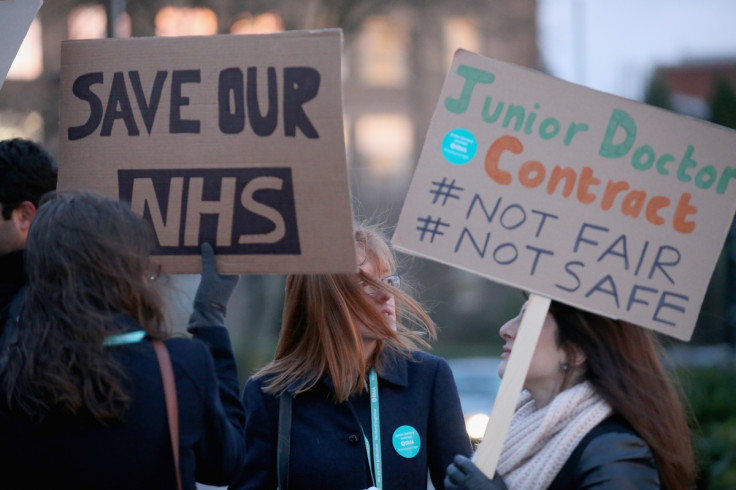Junior doctors' strike: Sandwell Hospital orders staff to cross picket lines following 'major incident'

A hospital in the West Midlands has declared a level-four major incident and is calling for some of its junior staff to attend work on the day of the first strike action in 40 years. Sandwell Hospital is demanding some junior doctors come in to work to cope with the high level of demand.
The announcement arrived as tens of thousands of junior doctors are taking part in a mass walkout over a contract dispute with the government, around issues such as weekend pay and extended working hours.
While the strike takes place, patients have been asked to only attend A&E if they have a genuine emergency. Junior doctors would be required to return to work if a "major unpredictable incident is taking place for a specific trust", the British Medical Association (BMA) confirmed.
Sandwell Hospital has now declared a level-four incident and said it needs its doctors to leave their pickets. Dr Roger Stedman, medical director at Sandwell and West Birmingham Hospitals NHS Trust, said: "Over the last two days we have had very high numbers of patients come to hospital, and fewer than usual discharged.
"Because of that we decided to require trainee doctors allocated to ward work to attend Sandwell during today's strike [12 January]. Staff taking action at [nearby hospital] City Hospital are unaffected. We would like to thank local doctors' representatives for their constructive support and advice."
NHS chief medical director Professor Sir Bruce Keogh had previously called on hospitals to instruct their junior doctors to return to work if staff became overstretched in a letter published in the Daily Telegraph. The letter triggered a furious response from Dr Mark Porter, head of the BMA, who wrote to Keogh: "Your letter to medical directors has been interpreted by many doctors as a further attempt to thwart lawful industrial action in favour of which junior doctors voted almost unanimously."
BMA junior doctors committee chairperson Johann Malawana said: "Junior doctors feel they have been left with no option but to take this action. We have been clear throughout this process that we want to negotiate a contract that is safe and fair, and delivers for junior doctors, patients and the NHS as whole.
"This remains our goal and our door is open to talks, but the government must address our concerns around safe working patterns and ensure the contract recognises the long, intense and unsocial hours that junior doctors do."
Labour leader Jeremy Corbyn blamed the government for the current situation. He added: "Everybody in Britain recognises and is grateful for the hard work and long hours put in by junior doctors. Their treatment by this government has been nothing short of appalling, leading to the strike action in our NHS today.
"No NHS worker takes lightly the decision to strike, but the blame must be laid at the door of this government for the way it has treated doctors and now seeks to smear them in the press. It is time for this government to apologise to junior doctors and negotiate a fair deal that gets our NHS working again."
© Copyright IBTimes 2025. All rights reserved.





















